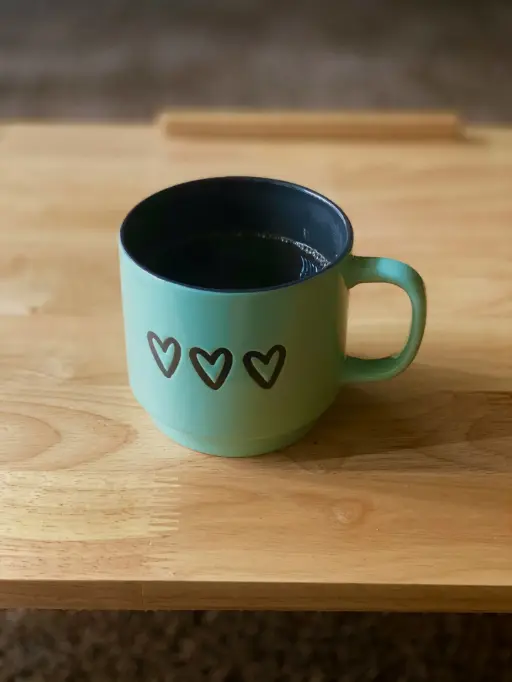Extended Producer Responsibility (EPR) is a core part of environmental legislation in the European Union. It places responsibility for the waste management of products on producers, from packaging and paper to textiles, shoes and electronics (WEEE). But what exactly does EPR mean? How do the rules differ between EU countries, such as Germany and France? In this article, we cover everything you need to know about EPR and how your business can comply with the regulations.
What is EPR and why is it important?
EPR (Extended Producer Responsibility) is a policy measure that requires companies to manage the entire life cycle of their products, including the waste that occurs after use. The aim is to reduce environmental damage and encourage recycling.
Main EPR obligations:
- Registration: Companies must register with EPR systems in countries where they market products.
- Reporting: Indicate how many packaging, paper or other materials are placed on the market.
- Payment: Contributions to the costs of recycling programmes.
EPR applies to various product categories, including:
- Paper
- Packaging
- Textiles
- Shoes
- Electronics (WEEE)
How do you comply with EPR in the EU?
- Identify your product categories:
Check whether your products fall under paper, packaging, textiles, shoes, or WEEE. It may be that one product falls into multiple categories, such as shoes in a shoebox. - Register your business or engage a representative:
Each EU country has its own system, such as LUCID in Germany and Eco-Emballages in France. - Keep your reports in order:
Ensure accurate record-keeping of quantities and materials. Map out how much of each material your product contains, and make sure to keep track of how many products you sell in each country.
| Country | Category | Organisation | Mandatory registration | Special Requirements |
|---|---|---|---|---|
| Belgium | Packaging | Fost Plus | X | Verschillende regels voor huishoudelijk en commercieel afval. |
| Electronics (WEEE) | Recupel | X | Rates calculated based on weight and type of device. | |
| Textiles and Shoes | ReFashion Belgium | X | Rapportage over ingezamelde en gerecyclede volumes. | |
| Bulgaria | Packaging | Ecopack Bulgaria | X | Bedrijven moeten een jaarlijkse rapportage indienen. |
| Electronics (WEEE) | Eltech Resource | X | Mandatory collection of small appliances. | |
| Cyprus | Packaging | Green Dot Cyprus | X | Contribution dependent on material type. |
| Electronics (WEEE) | WEEE ElectroCycle | X | Collection obligation for household appliances. | |
| Denmark | Packaging | DPA-System | X | Annual reporting is mandatory. |
| Electronics (WEEE) | Elretur | X | Target figures for recycling must be achieved. | |
| Germany | Packaging | LUCID/Duale Systeme | X | LUCID registration mandatory for packaging. |
| Electronics (WEEE) | Stiftung EAR | X | Report by device type and quantity. | |
| Textiles and Shoes | Eco-Textil | X | Reporting and recycling of clothing mandatory. | |
| Estonia | Packaging | ETO | X | Contributions dependent on collected waste. |
| Electronics (WEEE) | EES-Ringlus | X | Producers are required to meet recycling targets. | |
| Finland | Packaging | Finnish Packaging Rec. | X | Specific rules for cardboard and plastic. |
| Electronics (WEEE) | Elker Oy | X | Annual inspection by national authorities. | |
| France | Packaging | Citeo | X | Reporting required on recycled quantities. |
| Electronics (WEEE) | Ecologic | X | Producers must promote reuse. | |
| Textiles and Shoes | Refashion | X | Companies must contribute to collection systems. | |
| Greece | Packaging | Hellenic Recycling Organisation. | X | Specific focus on plastic and metal packaging. |
| Electronics (WEEE) | Appliance Recycling | X | Mandatory use of certified collection points. | |
| Hongary | Packaging | ÖkoPannon | X | Focus on glass and plastic recycling. |
| Electronics (WEEE) | ElectroCoord | X | Fines for non-compliance can be high. | |
| Ireland | Packaging | Repak | X | High priority for glass recycling. |
| Electronics (WEEE) | WEEE Ireland | X | Annual reporting is mandatory. | |
| Italy | Packaging | CONAI | X | Specific eco-contribution for cardboard, plastic, etc. |
| Electronics (WEEE) | EcoLight | X | Collection targets for small electronic devices. | |
| Croatia | Packaging | Eko-Ozra | X | Annual collection targets for all materials. |
| Electronics (WEEE) | ECO-Cycle | X | Fines for failing to meet recycling quotas. | |
| Latvia | Packaging | Latvijas Zalu Punks | X | Producer contribution dependent on volumes. |
| Electronics (WEEE) | Elektropunkts | X | Mandatory collection via approved depots. | |
| Lithuania | Packaging | Gamtos Ateitis | X | Eco-design is strongly encouraged. |
| Electronics (WEEE) | Elektrosauga | X | Registration required for exporting companies. | |
| Luxembourg | Packaging | Valorlux | X | Specific collection programmes for glass. |
| Electronics (WEEE) | Ecotrel | X | Detailed reporting required for all devices. | |
| Malta | Packaging | GreenPak | X | Focus on household waste management. |
| Electronics (WEEE) | ERA | X | Periodic checks by the government. | |
| Netherlands | Packaging | Nedvang | X | Producer contribution dependent on type of material. |
| Electronics (WEEE) | Wecycle | X | Update fundraising goals annually. | |
| Austria | Packaging | ARA | X | Specific contribution for plastic packaging. |
| Electronics (WEEE) | ERP Austria | X | Detailed reporting required per product category. | |
| Poland | Packaging | Rekopol | X | Contributions dependent on recyclability. |
| Electronics (WEEE) | ElektroEko | X | Annual reports required. | |
| Portugal | Packaging | Sociedade Ponto Verde | X | Eco-contribution depending on material type. |
| Electronics (WEEE) | Amb3E | X | Strict recycling quotas for producers. | |
| Romenia | Packaging | Eco-Rom Ambalaje | X | Collection of packaging is mandatory. |
| Electronics (WEEE) | RoRec | X | Annual report on collected quantities. | |
| Slovenia | Packaging | Slopak | X | Specific targets for glass and paper. |
| Electronics (WEEE) | ZEOS | X | Producers required to collect free of charge. | |
| Slovakia | Packaging | Envipak | X | Producers must participate in collective systems. |
| Electronics (WEEE) | SEWA | X | Fines for non-compliance with recycling quotas. | |
| Spain | Packaging | Ecoembes | X | Contributions depend on the type of packaging. |
| Electronics (WEEE) | Recyclia | X | Reporting required per type of device. | |
| Sweden | Packaging | FTI | X | Producers must register transport packaging. |
| Electronics (WEEE) | El-Kretsen | X | Collection obligation for all types of electronics. |
An authorised representative
An authorised representative (Authorized Representative, AR) is a local point of contact within the EU that can be responsible on behalf of non-EU companies for EPR registrations, reporting, and recycling contributions. Although an AR is mandatory in some countries, such as for WEEE (electrical and electronic equipment) in Germany, non-EU sellers can in other cases comply with the regulations by registering directly with the national EPR authorities. However, engaging an AR can be beneficial for managing complex local requirements and ensuring compliance, especially if companies are active in multiple EU countries. It can also help reduce administrative burden.
Mandatory icons on packaging in Italy
Italy mandates clear recycling instructions on packaging to promote sustainability.
Read more
Conclusion
EPR is not only a legal obligation in the EU, but also an opportunity for companies to reduce their ecological footprint. Whether you sell packaging, textiles, shoes, or electronics, it is therefore important to understand and comply with the regulations in each country where you operate. By registering in a timely manner and collaborating with local partners, you can not only avoid fines but also contribute to a more sustainable world.
Start today with EPR registration!
Make sure you comply with EPR legislation in Germany, France and other EU countries!









